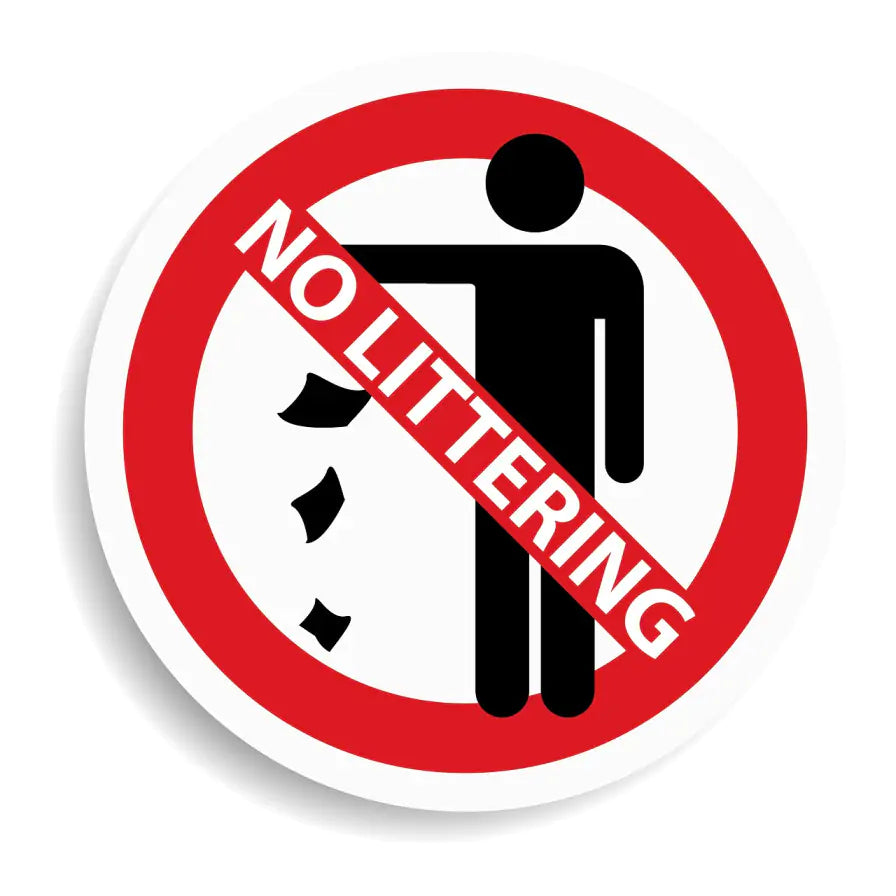OR
Express Checkout

Not all rubbish ends up in litter bins. It ends up on our streets, in parks, at our beauty spots, and on our beaches. It’s way more than an unsightly nuisance. In fact, litter is bad for several reasons. Read on to find out more.
RSPCA figures show that it receives around 10 calls per day about animals that have been harmed by litter. Over a two-year period, this equates to almost 7500 cases. If you’ve ever carelessly discarded a plastic bag or plastic can holder, think again. These everyday items can cause serious harm to wildlife. Take plastic bags for example. Animals can get trapped in them and suffocate, or they might try to eat them and choke. When it comes to other types of rubbish, they don’t fare much better. Animals can get tangled up in plastic can holders and get stuck in jars. They can also get trapped in netting or injured by shards of plastic or glass.
According to Keep Britain Tidy, the two million pieces of litter we drop every day costs over £1 billion a year to clear up. That’s money we can seldom afford to waste when there are cuts to vital services and the cost of living is rising. Dispose of your rubbish properly and that money could be far better spent.
Studies have shown that in areas with high amounts of litter, anxiety and depression are more prevalent. Then there are the physical hazards of litter like being cut by broken glass or sustaining an injury from a discarded needle. The dumping of hazardous waste can harm human health too. All hazards we could avoid if people just disposed of their waste correctly.
Cigarette butts contain harmful chemicals such as lead and arsenic, which can leach into the soil or groundwater. The same goes for waste that rots away in landfill. Plastics can take hundreds of years to decompose. Imagine how much pollution they could cause in that time.
Litter on our beaches often ends up in our oceans. According to the International Union for Conservation of Nature (IUCN), around 14 million tonnes of plastic end up in the ocean every year. Plastic makes up about 80% of all marine debris.
Plastics break down into tiny particles called microplastics. Animals ingest them and they can end up in the food chain.
Ocean litter, particularly plastic can; Injure or kill marine wildlife. Animals ingest plastic litter, get injured, or tangled up in it. Marine wildlife mistake plastic for food or prey. As their stomachs fill with plastic, they die a painful death.
Who wants to go to a heavily littered or polluted beach? Litter has an impact on economies and ecosystems, often in countries that don’t have the means to deal with it.
Plastic contains chemicals that are known carcinogens and endocrine disruptors. This means that if we ingest them, they can potentially cause issues with our reproductive and immune systems and more.
When it comes to the damage that it can do, this is just the tip of the iceberg. You might think dropping the odd crisp packet or empty can doesn’t matter, but if many people do it, it does. Always think before you throw and if you see some litter on the ground, don’t walk by. Pop it in the nearest bin or take it home. The planet will thank you. For more interesting articles on litter and the environment, check out the rest of our blog.